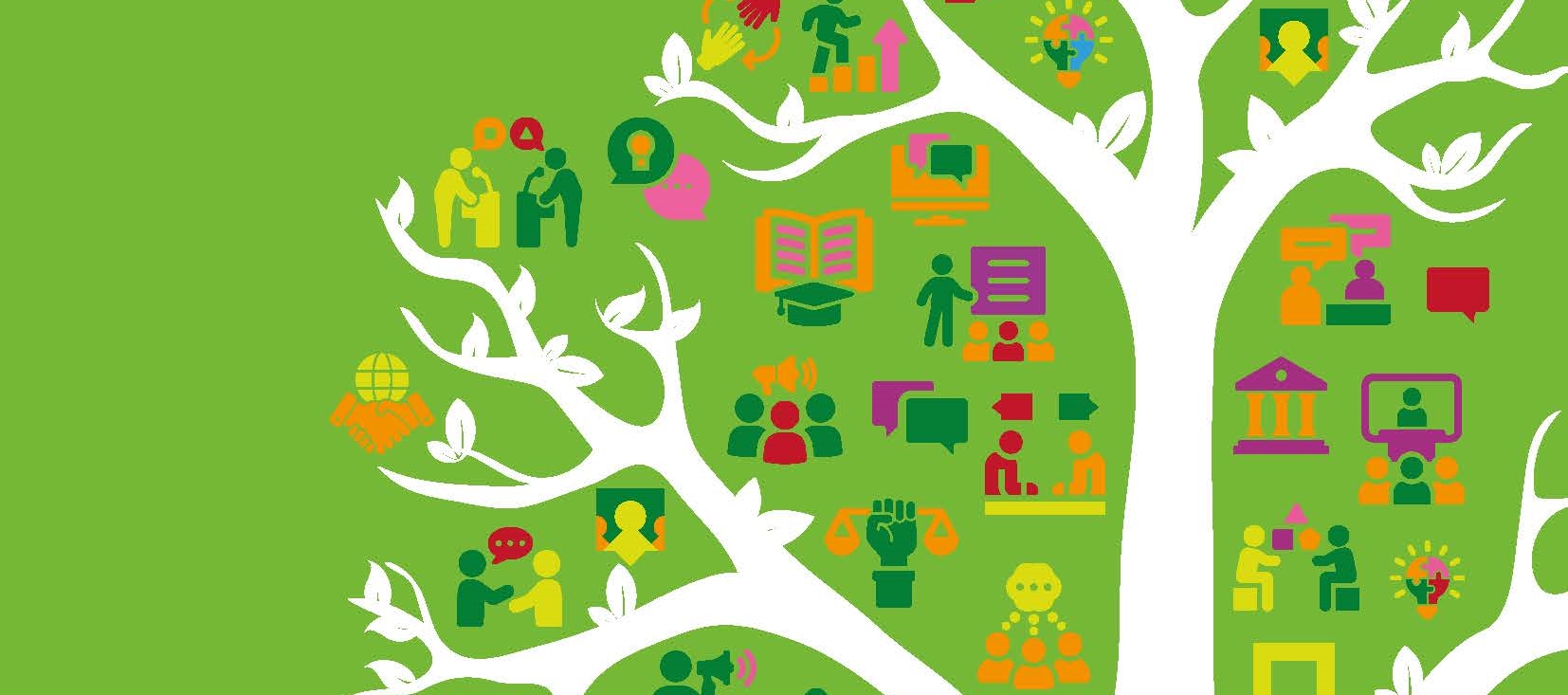العودة

Celebrating world teachers' day and the international day of the girl child
اليونسكو
2024 - 10 - 07
As UNESCO celebrates World Teachers' Day on 5 October and the International Day of the Girl Child on 11 October, it reaffirms its commitment to empowering both educators and girls worldwide.
World Teachers' Day honors the vital contributions of educators in shaping future generations and fostering inclusive learning environments, while the International Day of the Girl Child, themed ‘Girls’ vision for the future’, highlights the urgent need for equal opportunities and resources for girls, who often face unique challenges in accessing education particularly in Arab countries.

As UNESCO celebrates World Teachers' Day on 5 October and the International Day of the Girl Child on 11 October, it reaffirms its commitment to empowering both educators and girls worldwide.
World Teachers' Day honors the vital contributions of educators in shaping future generations and fostering inclusive learning environments, while the International Day of the Girl Child, themed ‘Girls’ vision for the future’, highlights the urgent need for equal opportunities and resources for girls, who often face unique challenges in accessing education particularly in Arab countries.
As part of its World Teachers’ Day celebrations under the theme “Valuing teacher voices: towards a new social contract for education”, UNESCO hosted the award ceremony for the 2024 edition of the UNESCO-Hamdan Prize for Teacher Development on 4 October. This Prize, funded by the Hamdan Bin Rashid Al Maktoum Foundation for Medical and Educational Sciences, aims to support initiatives to improve teaching and learning in line with Sustainable Development Goal 4.
World Teachers' Day and the International Day of the Girl Child together highlight the importance of education as a transformative force for gender equality. They empower both teachers and girls to realise their full potential and contribute positively to their communities.
أحدث المنشورات
القائمة الكاملةاليونسكو
المستقبل على المحك: لماذا الاستثمار في التعليم أمر بالغ الأهمية؟
يسلط هذا التقرير، الذي أعدّته اللجنة التوجيهية الرفيعة المستوى المعنية بالهدف الرابع من أهداف التنمية المستدامة (SDG4) بالتعاون مع الشراكة العالمية من أجل التعليم (GPE) ونُشر في عام 2024، الضوء على الحاجة المُلِحّة لتعزيز الاستثمار في التعليم كوسيلة أساسية لمواجهة التحديات العالمية، بما في ذلك تغيّر المناخ، والتطورات التكنولوجية، والتحوّلات الديموغرافية.
اليونسكو
المدن العربية تتألق في جوائز مدن التعلم لليونسكو لعام 2024
تُحرز المدن العربية تقدمًا كبيرًا في مجال التنمية المستدامة والتعلم مدى الحياة، مع تركيز متزايد على إنشاء بيئات تعليمية شاملة تُسهم في تحقيق الأهداف التنموية المحلية والعالمية. وقد احتفلت جوائز مدن التعلم لعام 2024، التي تُمنح من قِبَل اليونسكو، بهذه الجهود، مبرزةً المدن العربية التي تميزت في بناء مجتمعات تعليمية.
اليونسكو
مؤتمر اليونسكو العالمي الثالث للموارد التعليمية المفتوحة: تعزيز الوصول الشامل إلى المعرفة
انطلق مؤتمر اليونسكو العالمي الثالث للموارد التعليمية المفتوحة (OER) في 19 نوفمبر/تشرين الثاني 2024، في مركز دبي التجاري العالمي في دولة الإمارات العربية المتحدة، ليكون المرة الأولى التي يُستضاف فيها هذا الحدث في العالم العربي. نظّم مؤتمر اليونسكو بالتعاون مع مؤسسة محمد بن راشد آل مكتوم للمعرفة (MBRF)واستقطب أكثر من 500 مشارك ومشاركة من نخبة القادة العالميين، وصنّاع السياسات، وممثلي المؤسسات التعليمية، بما في ذلك وزراء، وأكاديميون، وخبراء من القطاع الخاص. وتركّزت المناقشات على مدار يومين حول تعزيز الاستفادة من الموارد التعليمية المفتوحة والتقنيات الناشئة، بهدف تحقيق وصول عادل وشامل إلى التعليم، وتقليص الفجوة الرقمية على الصعيد العالمي.
اليونسكو
الأمم المتحدة تحتفي في شهر ديسمبر/كانون الأول بحقوق الإنسان، والأشخاص ذوي الإعاقة، واللغة العربية
تُحيي الأمم المتحدة في شهر ديسمبر/كانون الأول ثلاث مناسبات بارزة تُعنى بحقوق الإنسان، وبحقوق الأشخاص ذوي الإعاقة، وباللغة العربيّة، ممّا يجعل هذا الشهر فرصةً عالميّةً للتفكير والعمل. وتقود اليونسكو الجهود لتعزيز التعليم الشامل، وحماية حقوق الإنسان، والاحتفاء بالإرث الثقافيّ واللغويّ للّغة العربيّة، من خلال سلسلة من الفعاليات والمبادرات.